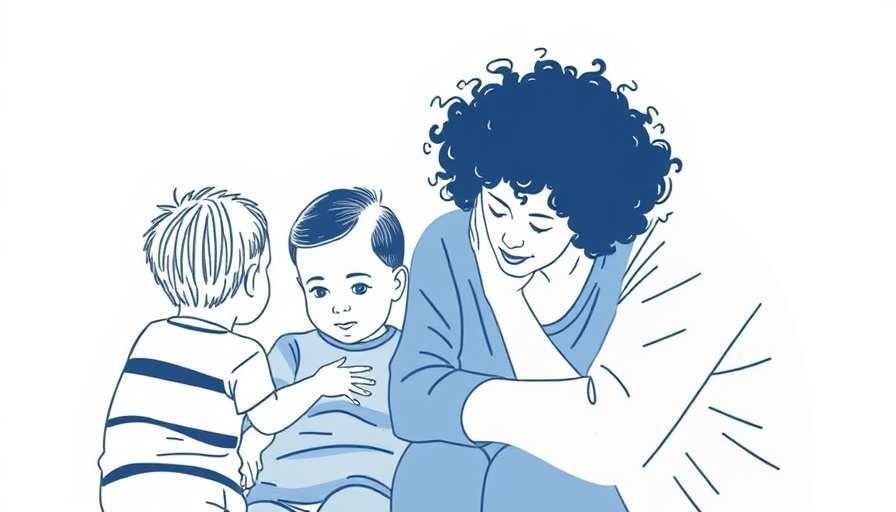
Insights into Intergenerational Anxiety Transmission
As we grapple with rising mental health challenges among our youth, understanding how anxiety can be transmitted across generations becomes crucial. Recent studies, including research led by Dunn et al. (2024), indicate that both genetics and environmental factors, particularly parenting styles, play significant roles in this transmission.
The Role of Parenting in Anxiety Development
Parents with anxiety often model behaviors that contribute to their children's mental health outcomes. Anxious parenting can manifest in various 'anxiogenic' behaviors such as fear modeling and over-controlling tendencies. Strategies aimed at addressing these behaviors present promising avenues for intervention.
A Groundbreaking Study on Online Interventions
To explore effective prevention strategies, Dunn and colleagues conducted a comprehensive study with 1,811 parents from the UK. Parents of children aged 2 to 11 who reported significant anxiety levels were invited to participate in an online randomized controlled trial (RCT). They engaged with an eight-module course designed to decrease anxiety by transforming parenting techniques.
Evaluation of Intervention Outcomes
The results from the trial were promising: by the six-month evaluation, children in the intervention group exhibited significantly lower anxiety levels compared to those in the control group. The data indicated a reduction of 0.15 standard deviations in the Spence Children’s Anxiety Scale (SCAS) scores, translating to a practical reduction in observed anxiety symptoms.
Broader Implications for Prevention Strategies
This evolving evidence emphasizes the importance of targeting parental behaviors as part of our broader efforts to tackle youth mental health. Indeed, addressing the root causes rather than just the symptoms of anxiety can lead to more sustainable preventative measures, fostering healthier, happier families.
Future Directions for Research and Community Action
As the Grand Strand community becomes more aware of mental health issues, grassroots efforts can complement these findings. Local organizations can leverage insights from studies like Dunn et al.’s to design workshops and support systems that help parents cultivate healthy parenting styles.
Take Action for a Healthier Future
This research underscores the urgency of developing prevention strategies that target not only children but also their parents. Engaging in community programs aimed at empowering parents to adopt healthier interactions with their children could have profound effects. As residents of the Grand Strand, we have the power to foster better mental health outcomes by investing in these strategies now.
 Add Row
Add Row  Add
Add 





Write A Comment